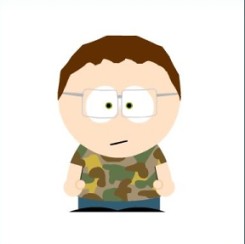Dreck!
After using the word dreck to describe two movies in the previous post, I was inspired by the appropriateness of the word to look into its etymology. It almost sounds like a exclamation one would make when exposed to dreck, and sure enough it seems that in the earliest quotation in the OED (in Ulysses?!) it was used in this sense:
[a. Yiddish drek (G. dreck) filth, dregs, dung, [...], Ult. origin uncertain but connection with Gr. [...]
Rubbish, trash, worthless debris.
1922 JOYCE Ulysses 511 Farewell. Fare thee well. Dreck! 1947 Horizon Feb. 90 The anonymous countryside littered with heterogeneous dreck. 1965 E. LACY Double Trouble v. 58 Drek your dolls are!.. I wouldn't stick my customers with such junk! 1966 E. WEST Night is Time for Listening i. 13 ‘You are dreck,’ she said. ‘I hope you are killed.’ 1967 O. HESKY Time for Treason v. 38 Meat better than the usual drek we get.





















